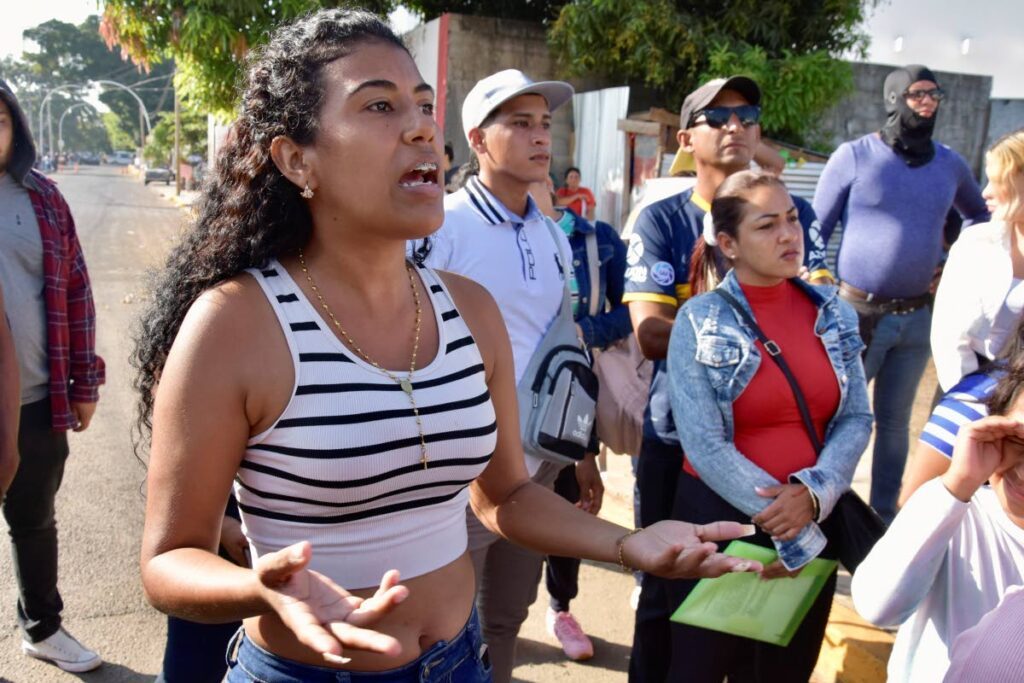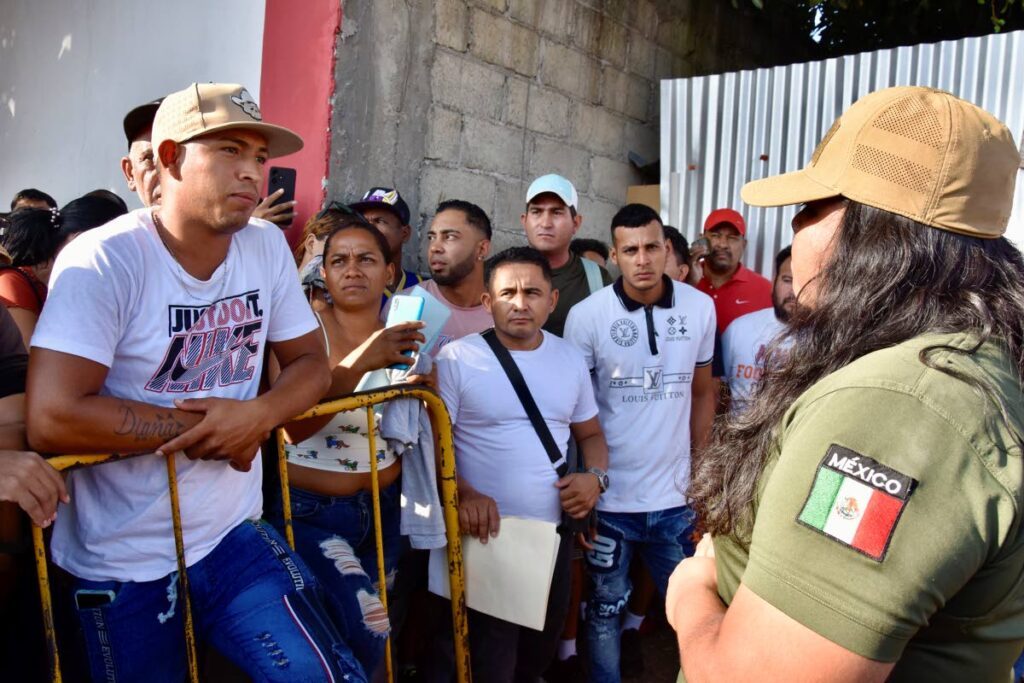Refugees stuck in Trinidad and Tobago – Venezuelans in limbo as Trump changes US migrant policy

ON his first day back as US president, on January 20, Donald Trump signed an executive order which temporarily suspends all foreign assistance programmes for 90 days.
This order includes the US Refugee Admissions Program (USRAP), leaving thousands of refugees who had been hoping to resettle there in limbo, including hundreds currently living in TT.
The suspension will take effect on January 27, directly affecting the resettlement programme, which was implemented during the Joe Biden administration and facilitated the safe transfer of refugees with the support of the International Organization for Migration (IOM) and the UN Refugee Agency (UNHCR).
Most of these refugees are Venezuelan, Cuban and Haitian.
The resettlement programme had been a key tool to streamline the processing of refugees, reduce the risks associated with irregular migration, and ensure applicants’ safety in transit.
In his executive order, Trump justified the suspension by saying the programme had generated “record levels of migration” and the US lacks the capacity to absorb such a high flow without compromising the security of and resources and assimilation capacity for refugees.
The measure includes a comprehensive review of the programme and conditions its resumption on a report, to be submitted within 90 days by the Department of Homeland Security (DHS) and the Department of State.
During his first term, in 2017, Trump had also cancelled these refugee programmes. Biden reactivated them on arriving in the White House in 2020.
It was estimated that 125,000 refugees from different countries would arrive in the US between October 2024 and October 2025. Newsday understands the quota set for TT was 650 refugees, of whom only a small percentage have been able to travel to date.
Several questions were sent January 21 to IOM, UNHCR and the Living Water Community about the impact of the new measures on refugee programmes here.
The UNHCR said via e-mail: “We are aware of the executive orders. UNHCR is currently analysing the new executive order and its potential impacts; therefore, we are not in a position to comment at this stage.”
Rhonda Maingot, director of the Living Water Community, told Newsday via text message although not at work at present, she is closely following the situation of refugees in the US. She had heard Trump had signed an executive order on refugees and migrants, but not the details.

“However, what I heard him say is that he was in favour of the US taking in refugees and migrants, but legally. This is encouraging.”
But she believes it is too early to make further comments.
“We will have to wait for the details of this order.”
No response was received from the IOM, the main organisation in charge of the resettlement programme.
Several refugees who already had travel dates approved – but then suspended – spoke to Newsday on January 20.
One of those affected, Carlos Martinez (his real name has been withheld for his security) said, “This suspension of the programmes, when we already had travel dates, leaves us up in the air.
“Many families sold our furniture, withdrew our children from school, gave up our rented apartments, gave up our jobs and now no one is answering us. “We don’t know what to do or who to turn to. The IOM and the UNHCR are not giving us information.”
Martinez, his wife and two children had a travel date of October 16, 2024.
“They called us from the IOM a week before the trip to cancel it. “Since then we have lost touch with them. They don’t answer messages or e-mails. “We do not understand why they treat us like this. We are human beings, refugees and in vulnerable situations – that is why they approved our resettlement. We have children sleeping on the floor. Sometimes we do not have food to eat.
“It is difficult, and unfair that these organisations do not respond to us.”
Newsday confirmed refugees through similar programmes in Colombia, Ecuador, Costa Rica and Guatemala continued to travel normally until last week. No one could explain why it was apparently only from TT that refugees’ travel to the US has been suspended since October.
The programme for resettling refugees from TT, in addition to the US, includes sending some to Canada and Australia.
Martinez said, “If our trips to the US were suspended without certainty of reactivation, the correct thing would be for them to move us to other countries, pay attention to us and give us answers, so we know what to do with our lives.”
Trump’s orders also included the cancellation of the CBP One programme on the border with Mexico and Humanitarian Parole.
CBP One, developed by US Customs and Border Protection (CBP), was expanded in 2023 to include unauthorised migrants seeking protection from violence, poverty or persecution.
It was shut down on January 20, after Trump’s inauguration. Under Humanitarian Parole, certain people outside the US may request parole into the US for urgent humanitarian reasons or for a significant public benefit.
Some refugees in TT also applied for both those programmes, but were stranded in Mexico.

Comments
"Refugees stuck in Trinidad and Tobago – Venezuelans in limbo as Trump changes US migrant policy"